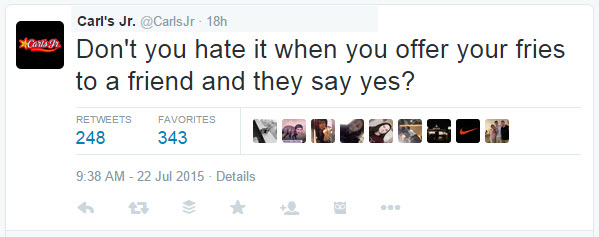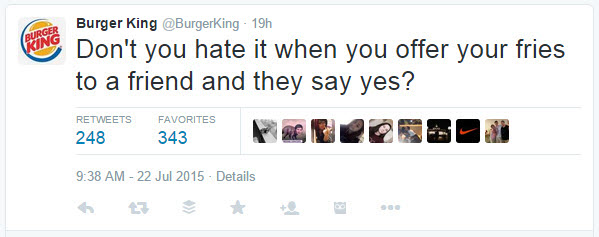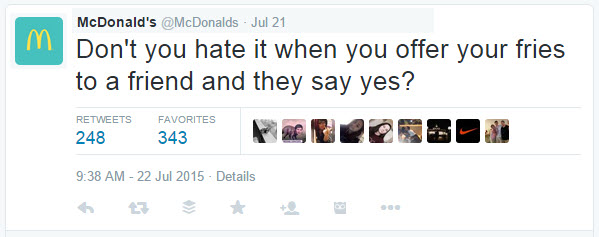
Every week I stumble upon or I’m referred to an independent restaurant who is winning with their online marketing efforts.
At the same time, not a week goes by where I’m underwhelmed, too.
You can define success in a lot of ways, but here are the 10 building blocks you must have in place if you’re going to succeed with your online marketing efforts as an independent restaurant.
1. A clear brand proposition.
It really helps to have a restaurant brand. Being a brand doesn’t mean you’re big. It definitely doesn’t mean you’re a chain. It just means the marketplace — i.e., those who eat! — knows what you are, and what you are not.
If you need a boost in this area, I cannot more highly recommend you spend some down time (haha, get it, DOWN time, like you have any of that) culling through the multitude of examples at the Grit + Grids website. It is the definitive resource on restaurant branding, at least from a visual standpoint.
After you finally pull yourself away from their site, you’ll still want to think through what your brand means, however. It should inform and fuel everything your brand does and how it does it.
2. An integrated digital strategy.
Before you rush to tactics — although I know we share a multitude of them here at NextRestaurants — you really need to think through your overall digital strategy. Be clear about your target market. Be honest about your available time and resources. And be willing to say no to things that don’t represent your brand (see #1).
What are your KPIs with your digital marketing? Be specific but realistic. What’s off the table — as in, it’s such a sacred cow for your brand that you won’t ever do it to market your restaurant? What’s perfectly suitable for your concept and brand, but you’ve never done it and it would be a low-cost, low-risk stretch?
The big-picture elements I see as necessary in an overall digital marketing strategy for a restaurant include the following (we’ll cover this in more detail in a future post):
- Your website’s design, structure, calls-to-action, and content
- Your consumer data collection policy and approach
- Review monitoring and response management
- Customer feedback solicitation and marketing
- Email acquisition and ongoing marketing (including automation)
- Mobile marketing (including text-message marketing)
- Social media monitoring, management, and engagement
- Third-party platform support (i.e., mobile payments)
- Paid search and social
- Local optimization (local directories, Google Maps)
- Promotions
When I say Promotions, I’m broadly referring to the manner in which you capitalize on naturally recurring calendar events (Valentine’s Day, football season, the Superbowl itself, Mothers’ Day, etc.) Many, many restaurants put this at the heart of their entire marketing strategy.
3. Authenticity.
My biggest problem with the social media tweets and posts of so many big brands is that they all sound exactly the same. There is zero personality. You could swap out logos and food images, and keep the text of their posts intact, and you wouldn’t miss a beat. There’s no real voice.
For example, which one of these is the real tweet***?



One is real. The others I hacked together. You can probably only tell which one is real because of that shoddy hacking.
Listen, I know it’s hard. I’m scrutinizing one tweet here, with no context (there was no context in this case, though). But part of being authentic is breaking free of the same-old, same-old and giving your brand its own personality and flair.
4. Consistency.
Trust me when I tell you that I get how challenging this one is. I’ve had bouts with my own consistency issues at NextRestaurants and stats suffer as a result. It’s a labor of love that has grown to levels I envisioned, but didn’t necessarily expect. And the rapid growth periods match with my consistency in investing in it.
Do the best you can to commit to a certain pace with your online marketing — or just hire someone to do it all for you and stay out of their way for a full year. Sustained success doesn’t come from having spurts of marketing activity. It comes from sustained effort.
5. Simplicity.
It might seem complicated to let customers order form anywhere. But it’s actually an act of simplicity — simplicity for the consumer. Oh sure, it’s a complicated approach you need to be willing to focus on to bring that into reality — digital ordering or omni-ordering — but it makes it so simple for customers to do business with you.
But beyond online ordering, think about your online marketing in general. It should follow a pace and a pattern that is simple to understand and execute on. Too many moving parts and something’s going to break.
6. Engagement beyond offers.
If you took #1 seriously. Like, if it really resonated with you, then this one should get your head shaking yes, too. But if you rushed right through #1, you probably think I’m off my rocker. The big brands so. My inbox is LITTERED with email coupons. Every. Single. One. Is. The. Same.
Intro text. Photo with food and me-too coupon or promo. Email footer.
Just like you’re careful about which friends you want your kids to choose early in life, you should be careful about which restaurants you watch and track.
7. Collaboration.
Everyone is in the same boat as you locally. Especially local businesses who see the potential of online marketing but lack the manpower or deep know-how or both. Why not work WITH them? You restaurant owners have been great at the people side of the business and cross-promotion with local businesses for years OFFLINE.
But then “online” came along and everyone ran into their basements again worrying about how to marketing their business, as though we’re all living in vaccuums.
Reach out to local businesses who are trying to establish their brand, their digital “voice,” and their social presence. Find ways to promote one-another online. Use your restaurant blog to do this, too.
8. Curiosity about marketing.
If you don’t have a natural curiosity about marketing, that’s a tough situation to put yourself into. I mean, come on. A small business owner who’s not curious about how to market her business? That doesn’t even make sense!
No one is going to tell you that you need deep expertise in email marketing trends and tactics, or best practices in social media. But you need to be functionally literate and curious. This is one of the reasons why I still tell every restaurant owner I know to download the Perch app and get going with it. You can monitor specific restaurants, to see what they’re doing with social, promotions, and reviews.
You can’t just be good at the food at the expense of everything else. Many a restaurant has had to shut doors despite having great food. If no one comes to pay to eat it, you might as well be a kitchen.
9. A focus on what realm you’re wanting to conquer.
It’s funny to me when people say “Facebook has 1.2 billion users! Every restaurant should be on it!” as though your target market includes all 1.2 billion users.
Truth is, for most restaurants the market that makes up the majority of your revenue is probably within 25 miles of your restaurant’s location. Maybe 50 miles if you’ve REALLY nailed #1 on this list. And if you’re in a vacation destination, clearly it’s a different story here.
So think about the realm — the realistic extent of your restaurant’s kingdom — that you can conquer. Sure, you’ll ultimately attract others. But think about how you can “own” your locale.
10. Realistic expectations and patience.
Some restaurants are like annoying internet marketers. Sometimes you guys (not you, personally, of course) are CONSTANTLY pounding us with offers, as though we don’t care about anything else.
We’ve already addressed how Millennials have far more on their mind than the price of a menu item. That has seeped into other generations’ expectations as well. Take advantage of that. Build a story, over time, and you can win the crowd. It takes time to build a brand, to attract people to a blog, and to gain buy-in to your concept.
Don’t be so consumed with winning a transaction that you forget to win a customer.
What do you think about all of this? What’s missing? What would you add?
(*** It was Burger King’s tweet. I’m no master Photoshopper here.)






